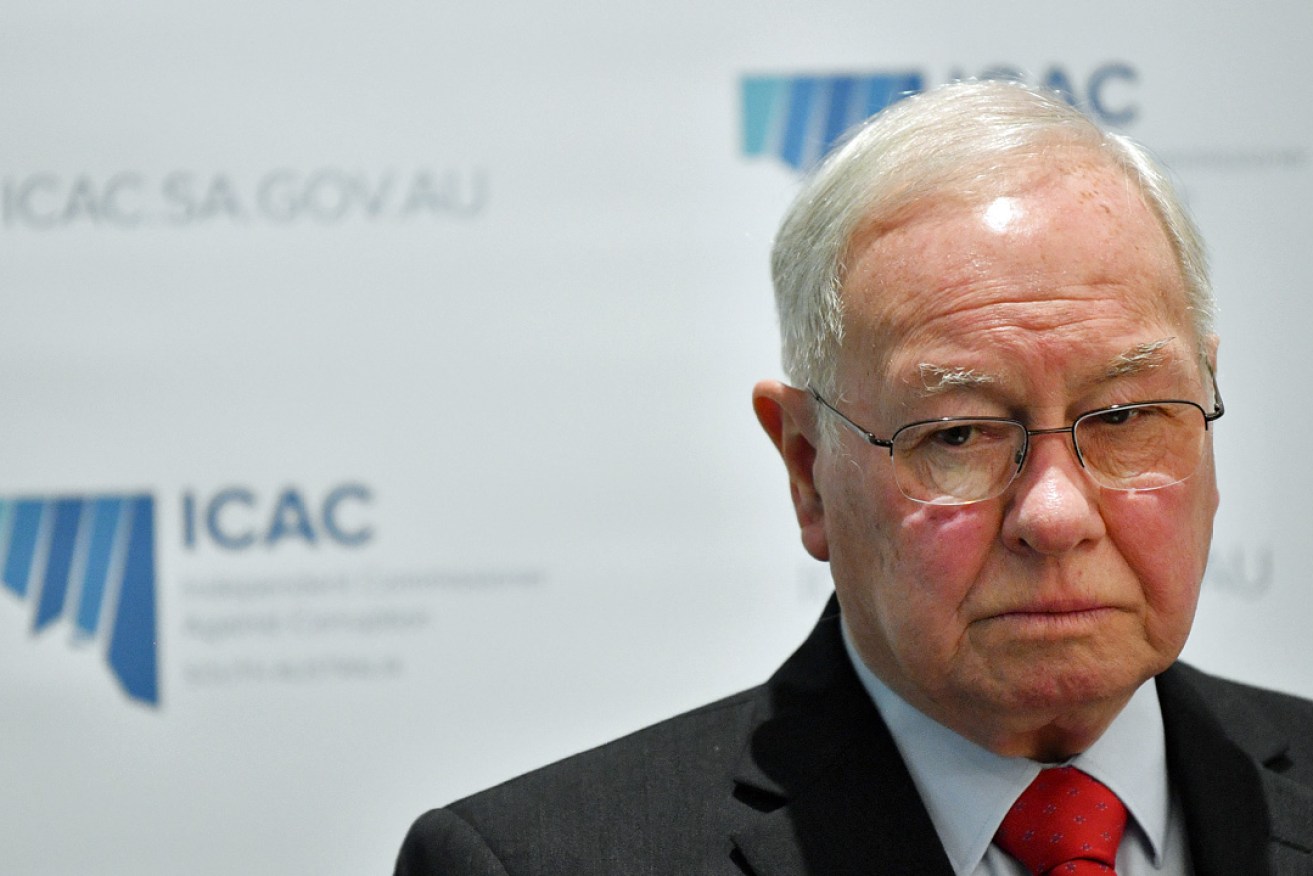Govt to review damning ICAC judgement
The Marshall Government intends to review a bombshell court finding that the state’s anti-corruption watchdog exceeded its authority, acted unlawfully and breached its own rules, after a judge handed down a damning assessment of the ICAC’s handling of a high-profile case.

Photo: David Mariuz / AAP
Crossbench MP Troy Bell, who has pleaded not guilty to 20 counts of theft and six counts of aggravated dishonestly dealing with documents, last week failed in his bid to have a permanent stay placed on the case against him.
Judge Liesl Chapman agreed with Bell’s lawyer, Marie Shaw QC, that the state’s Independent Commissioner Against Corruption Bruce Lander had exceeded his authority and contravened the Act governing his office when he referred Bell’s case directly to the Director of Public Prosecutions, bypassing police.
The judge also found ICAC exercised its power “unlawfully” for the purpose assisting the prosecution in acquiring “before trial further information in proof of Mr Bell’s guilt for the purpose of making his conviction more probable”.
But she declined to halt the proceedings, saying “a permanent stay of a criminal prosecution is an extraordinary step which will very rarely be justified”.
However, the decision could nonetheless have wider consequences for the anti-corruption watchdog, with Lander set to retire from the post next month and be replaced by former Supreme Court judge Ann Vanstone.
Attorney-General Vickie Chapman did not comment today, with her office saying Bell’s court case was still “active” so “she’s unable to provide comment in relation to that trial”.
However, her office confirmed that “there are aspects of the judgement” that will be reviewed.
Lander did not comment to InDaily today, his office saying: “The Commissioner will not comment on matters that are before the court.”
Chapman’s decision held that the ICAC’s referral of the Bell matter “direct to the DPP with the provision of information and evidence at the time, was contrary to the ICAC Act”.
“The matter should have been referred to SAPOL for further investigation and prosecution,” she found.
“The involvement of the ICAC investigators in the prosecution of the charges once laid was beyond the functions of the ICAC.”
Chapman went on to note that “the primary object of the Commissioner is to investigate a matter raising a potential issue of corruption in public administration and then investigate it or refer the matter to SAPOL for investigation”.
“The ICAC is invested with extraordinary powers to investigate corruption… prosecution of an offence falling within the definition in public administration forms no part of the Commissioner’s functions,” she wrote in her decision.
“If a matter arising out of a corruption investigation is to be prosecuted in SA, then it must be referred by the ICAC to SAPOL via… the ICAC Act…
“Once referred, if the matter is to proceed to charges and trial, SAPOL is to have conduct of the matter… the functions and powers of the ICAC do not extend to the gathering of evidence for the purpose of those criminal proceedings.
“After referral… the ICAC must endeavour to avoid prejudice to the accused person.”
Chapman determined that “the ICAC’s referral of this matter to the DPP in May 2017, with the provision of information and evidence at that time, was contrary to the ICAC Act”.
She went on the “involvement of ICAC investigators in the prosecution of the charges once laid… including contacting witnesses and potential witnesses to obtain declarations… was contrary to the ICAC Act”.
“The court does not condone conduct which is contrary to the ICAC Act,” she said.
She said the “plain meaning of the text” of the ICAC Act “does not support a power invested in the ICAC to refer a matter for prosecution to a body which is not a law enforcement agency” and the DPP “did not submit otherwise”.
“I consider that this ICAC investigation crossed the line into the accusatorial judicial process,” she said.
“The investigators have no place taking on what would ordinarily be the role of SAPOL [and] based on the filed affidavit material, it is clear that ICAC investigators have undertaken the role that SAPOL would usually perform in the preparation of major indictable charges for trial.”
That included, she said, “contacting witnesses, preparing declarations, arranging proofing sessions and following up reluctant witnesses”.
“I do not consider this falls within the functions of ICAC and his investigators.”
Shaw also submitted that information about Bell’s proposed defence was obtained by telephone intercepts in breach of legal professional privilege “and then used for the express purpose of obtaining evidence to negate his defence”.
This included phone calls to his wife as well as then-Leader of the Opposition Steven Marshall in 2016.
Chapman found there was “insufficient material before me to determine whether the conduct of the ICAC in regard to the identified calls was unlawful or unfair” but “even if the call [was] privileged I would not grant a stay on the basis of the breach of privilege”.
However, she noted, “it may be that the evidence sought to be led by the prosecution is the subject of an application to exclude” at a future point in the process.
Shaw late on Friday indicated she would appeal against the ruling.




